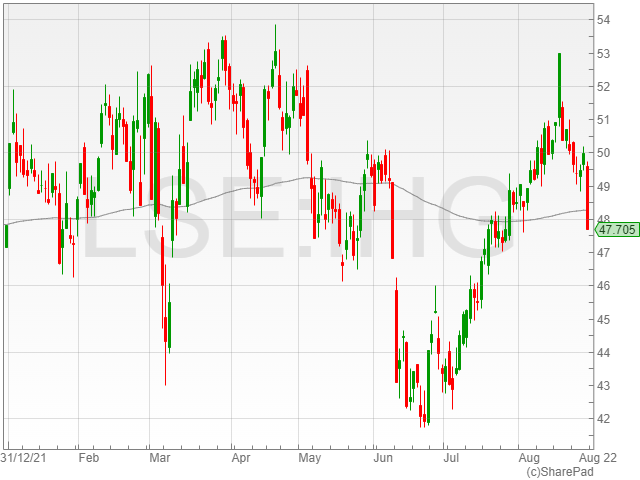The long-awaited Jackson Hole convention delivered with a bang and more, with US Federal Reserve chair Jerome Powell’s speech sending markets on both sides of the Atlantic into a spiral.
The FTSE 100 closed down 0.7% at 7,426.6, as confirmation of probable higher interest rates put investors in a pessimistic mood to finish the week.
However, the blue chip index appeared to escape the worst of the impact. European markets fell as Powell’s remarks piled on the bad news in the wake of soaring energy prices and Russia’s chokehold on gas supplies amidst the Ukraine war.
The German DAX dropped 2.3% to 12,957.4, the French CAC slid 1.9% to 6,259.9 and the Italian FTSE MIB fell 2.4% to 21,897.7.
US markets were unsurprisingly hit by Powell’s remarks, with the NASDAQ down 2.5%, the Dow Jones falling 1.7% and the S&P 500 declining 2% in the immediate aftermath. On the close in the US, the NASDAQ had given up 3.9% and S&P 500 3.1%.
Energy price cap chills consumer stocks
Meanwhile, the UK woke up to a bucket of cold water in the form of a whopping 80% rise in the Ofgem energy price cap to £3,549.
Consumer facing stocks had a bad day of trading, as investors assumed the extra hundreds of pounds per month soon to be required for energy bills would be going towards energy suppliers and not towards new fashion, furniture or leisure activities.
Retail stocks slid, with B&M down 1.4% to 369.8p, JD Sports Fashion dropping 3.7% to 109.6p, Next falling 2.2% to 5,756p, Ocado declining 4.2% to 731.2p, Sainsbury’s sliding 2.4% to 203.4p and Tesco decreasing 1.4% to 252.7p
Consumer products joined the fallers, with Reckitt Benckiser losing 0.7% to 6,572p and Unilever decreasing 0.9% to 3,931p.
Hotels and flights also saw the writing on the wall, as InterContinental Hotels dropped 4.4% to 4,747.1p and IAG fell 2.5% to 106.1p.

“With households in limbo waiting for a rescue package from whoever prevails in the Conservative leadership contest, the harm to consumer sentiment is only likely to fester,” said AJ Bell investment director Russ Mould.
“The need to find potentially hundreds more a month to light or heat a home is likely to squeeze disposable incomes to such an extent that spending on going out, buying new clothes, furniture or going on holiday will become beyond the means of many people. That spells bad news for already pressured retailers and other consumer-facing firms.”
Miners rise on higher copper prices
Higher copper prices boosted mining stocks, with the commodity rising 17% from its mid-July low. The metal gained 1.9% to $8,279.50 a tonne on the London Metal Exchange in early trading.
Mining companies crowded the top of the blue chip index, with Antofagasta rising 0.8% to 1,176.5p, Anglo American climbing 0.2% to 2,926.5p and Rio Tinto gaining 1.4% to 4,980p.

